Comparative Analysis -Definition, Overview, Methods, Benefits, Templates
by Mashum Mollah Business Published on: 07 October 2021 Last Updated on: 20 May 2025
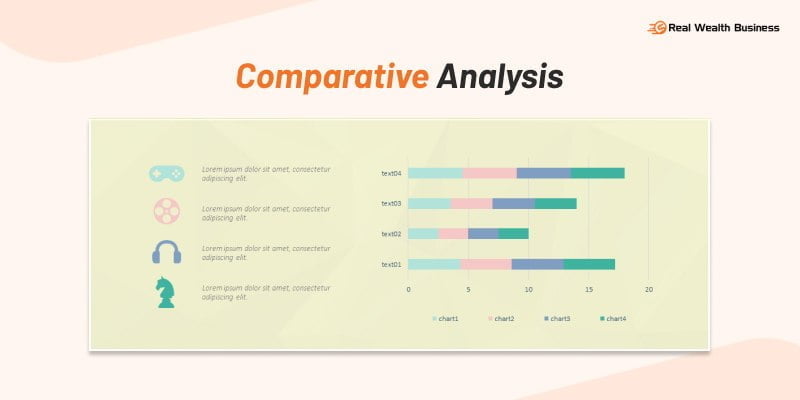
Comparative analysis is much hype today. Be it real estate market analysis, retail industry research, or academic purposes… comparison analysis is crucial. But neither everybody knows how to do a comparative analysis accurately, nor is there much information on the internet.
So here we are today, with our latest guide on comparing analysis focusing on Definition, Overview, Methods, Benefits, Template. Read the post from end to end to know what is a comparative analysis in detail.
What Is The Comparative Analysis Definition?
Comparative analysis is a popular analytical tool among researchers for comparing two or more documents, data sets, companies, or processes. Comparison analysis is more prominent in research studies where comparison and contrast are required between two industries or two markets. Especially, in marketing, real estate, business management, social program studies, etc, the majority of the need for comparison analysis arises.
Comparative Analysis Overview
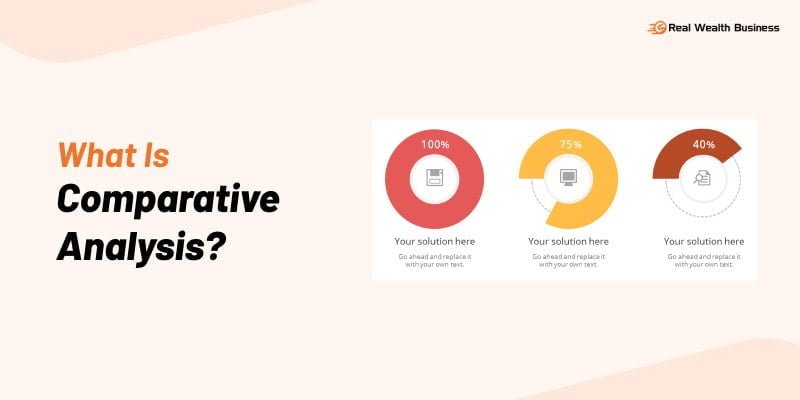
Now that I know the comparative analysis definition, it’s time to understand what is comparative analysis from a broader viewpoint. Although comparison analysis is a major part of academic research studies. Moreover, it still holds a position of immense importance in market research; therefore has a deep connection with marginal analysis.
For example, to analyze the performance of ABC company, the marketing team will conduct a comparative statement analysis with a rival, XYZ. In this regard, the revenue, market share, employee strengths, innovative ideas, unique business strategies, etc., will come under consideration.
Therefore, Comparative Market Analysis is something really important in this globalized world. One of the most popular questions we have received from you is, “ Which One Of These Is The Best Description Of A Comparative Market Analysis? ” It is a value estimate for a home based on recently sold, comparable homes in the area.
How To Do A Comparative Analysis?
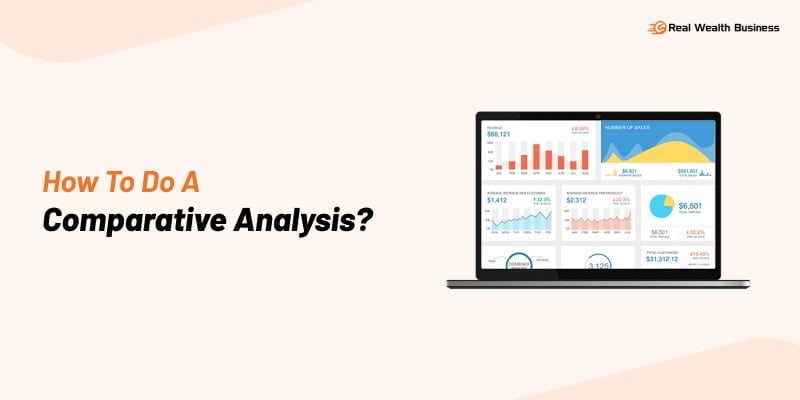
I am sure by now you are excited to know how to do a comparative analysis, right? Well, you are at the right place. This section will specifically elaborate on how to do a comparative market analysis.
Here is a step by step guide of how to write a comparative analysis in an effective way:
Step 1: Start The Research
Be it comparison analysis among financial statements or two companies or few industries, research extensively. Gather relevant data, for example, market data, industry-specific data, competitor data, etc to kickstart the comparison analysis.
Step 2: Point Out Different Similarities And Dissimilarities
The next step is to find the identical areas and non-identical areas among the selected variables.
Step 3: Develop The Research Thesis
The research thesis of your comparison analysis paper must revolve around the similarities and differences you have found.
Step 4: Write The Body
Once your thesis is complete and you have ideas in your hand, organize the information. You can follow the Subject by subject method or point-by-point method to gather all the findings.
Step 5: Cite The Sources
You must have referred to relevant sources while doing comparison analyses, right? So, cite them to maintain the transparency of your paper.
You May Also Like
- How To Become A Logistics Analyst
- What Is Market Opportunity And What Is Market Opportunity Analysis
- Situational Analysis – Purpose, Elements, Framework & Strategic Plan
Benefits Of Using Comparative Analysis
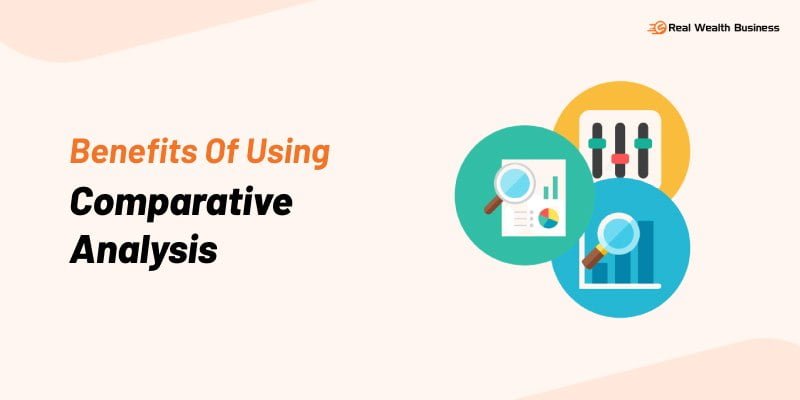
I hope you have no problems in understanding what is a comparative market analysis. But do you have any idea what advantages you can draw from the comparative analysis? If not, check out the points below to get better clarity:
- You can find similarities and differences between the two or more elements easily
- It enhances the awareness of different variables from a critical perspective
- Whenever you are writing an essay, the comparative analysis gives an analytical touch.
- Comparative analysis helps you make better decisions.
- You can easily detect the strengths and weaknesses of the comparing elements from comparative analysis data.
Examples Of Some Comparative Market Analysis Templates
In addition to the above-mentioned structure of comparison analysis, you can also use relevant comparative market analysis templates. How to write a comparative analysis – this is how you can present your analysis results. Here are some free handpicked comparative market analysis templates below only for you:
Click on their sources and get your hands on them.
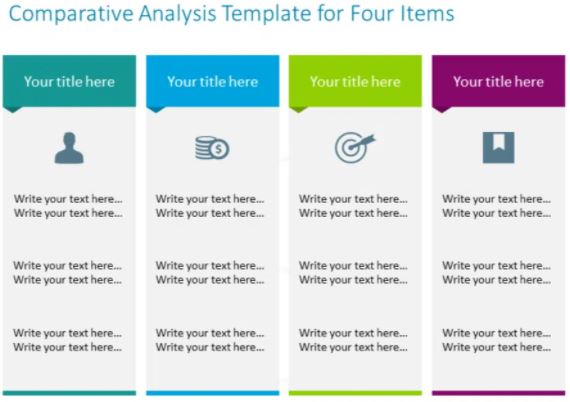
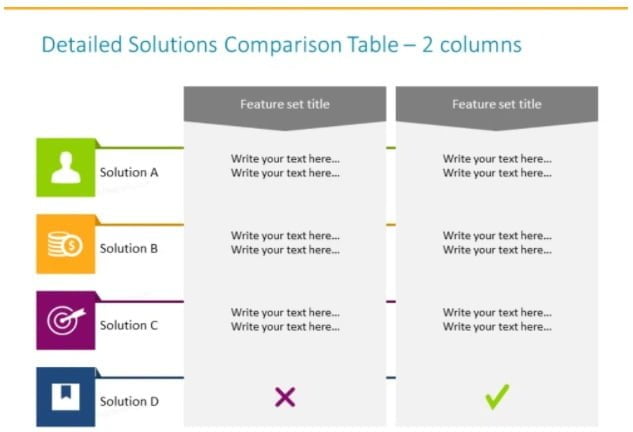
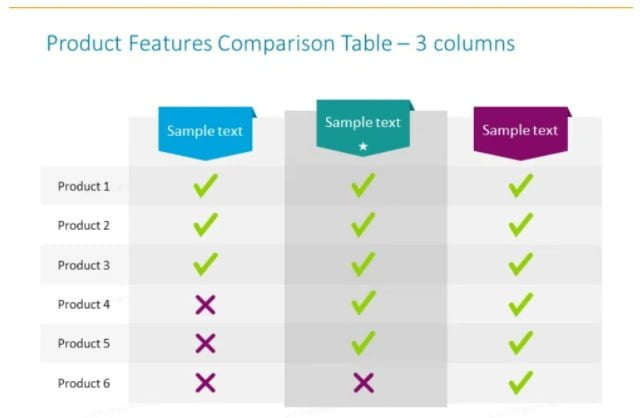
Image Source: https://www.infodiagram.com/diagrams/creative-comparison-ppt-tables-template.html
Frequently Asked Questions (FAQ)
Q1. Which One Of These Is The Best Description Of A Comparative Market Analysis?
Which One Of These Is The Best Description Of A Comparative Market Analysis? The best description of a comparative market analysis is a value estimate for a home based on recently sold, comparable homes in the area.
Q2. Horizontal Analysis Of Comparative Financial Statements Includes What?
Horizontal Analysis Of Comparative Financial Statements Includes What? It includes the calculation of dollar amount changes and percentage changes from the previous to the current year.
Q3. What Is Comparative Analysis Example?
Comparison of two or more processes, papers, data sets, or other things is a “ comparison analysis. ” Some prominent comparative analysis examples include pattern analysis, filtering, and decision-tree analytics. Comparative analysis of mutual funds, Comparative statement analysis, and comparative balance sheet analysis are also some of the most common applications of this comparison analysis model.
Q4. What Are The Types Of Comparative Analysis?
A comparison analysis is a method of determining and quantifying connections between two or more variables by monitoring distinct groups. These groups are subjected to different treatments, either by choice or by circumstances. Experts have identified different types of comparative analysis used in the real world. These are encompassing, variation-finding, universalizing, and individualizing.
The Final Takeaway
To summarize, a comparative analysis is conceptually comparing two or more things to discover some unique ideas about them. Not only in business but also you can use it to compare and contrast individuals, groups, social sections, etc. In this guide, we have explained comparison analysis in detail while we also have given some free, comparative analysis templates.
I hope you have found this post useful enough; do you have any more queries? Leave them in the comment box below; we are waiting to hear you out.
Read Also:



































































































